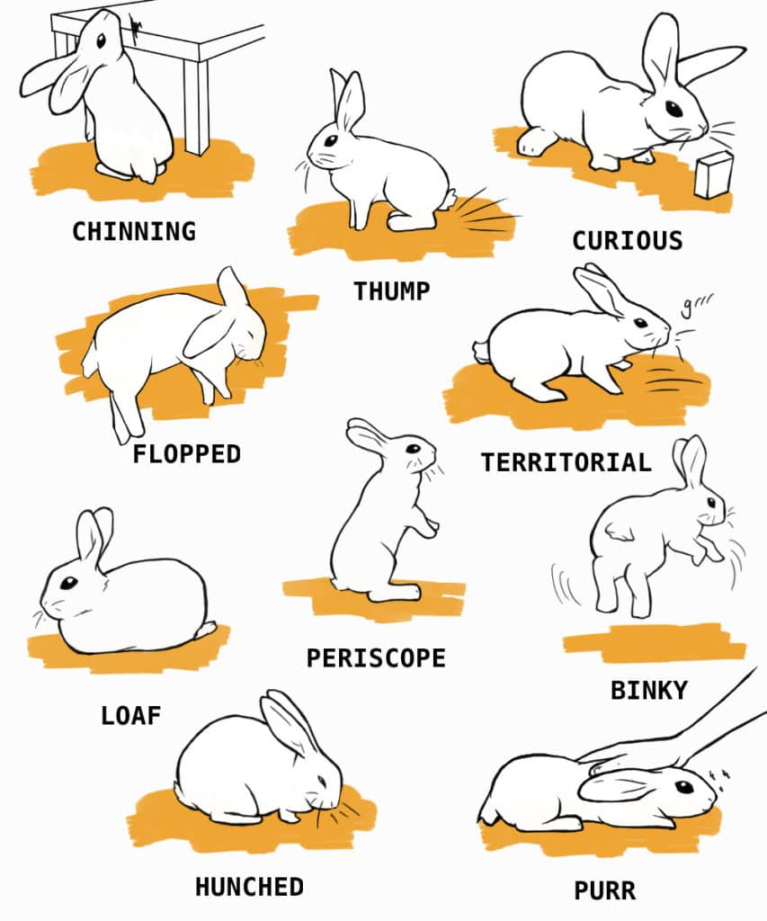Are Rabbits Easy to Take Care Of?
Rabbits are popular pets known for their adorable appearance and fluffy coats. They can make wonderful companions, but it is important to understand the level of care they require before bringing one into your home. While rabbits can be fairly easy to take care of, they still need proper attention, a suitable living environment, and regular veterinary care.

Providing the Right Environment
Creating a suitable living environment for your rabbit is crucial to their well-being. Here are some key factors to consider:
Housing
It is essential to provide your rabbit with a spacious and safe living area. A rabbit hutch or cage should be large enough for them to stretch out, stand on their hind legs, and hop around. Ensure the cage has solid flooring to prevent its feet from getting hurt. Providing a separate, enclosed space within the cage for sleeping and hiding is also important.
Indoor vs. Outdoor
Rabbits are typically kept indoors as they are vulnerable to extreme temperatures. However, if you choose to keep your rabbit outdoors, make sure they have a well-insulated hutch and access to shade during hot weather. Protect them from predators and provide them with ample space to exercise.
Exercise
Rabbits are active animals that require regular exercise to keep them healthy and happy. They should have daily access to a larger area where they can hop around freely, such as a rabbit-proofed room or a secure outdoor enclosure. Providing toys and tunnels can also keep them entertained and physically active.
Nutrition and Feeding
Proper nutrition is essential for your rabbit’s overall health. Here are some important considerations:
Hay and Fresh Vegetables
Rabbits have a unique digestive system that requires a diet high in fiber. The majority of their diet should consist of good quality hay, such as timothy or grass hay. Fresh vegetables, like leafy greens and root vegetables, can also be included in their diet. Introduce new foods gradually to prevent digestive upset.
Pellets
Rabbit pellets can be given in moderation as a supplement to their hay and vegetable diet. Choose high-quality pellets specifically formulated for rabbits and avoid those containing excessive amounts of fillers or sugary treats.
Water
Providing fresh, clean water at all times is crucial. Use a water bottle or a heavy ceramic bowl that cannot be easily tipped over.
Grooming and Hygiene
Maintaining proper hygiene is important for your rabbit’s health and well-being:
Brushing
Rabbits have dense fur that can mat easily, so regular brushing is necessary to prevent fur blockages and keep their coat in good condition. Use a soft brush or a grooming mitt designed for rabbits.
Nail Trimming
Trimming your rabbit’s nails regularly is important to prevent them from becoming overgrown and causing discomfort. Use proper nail clippers designed for small animals or seek assistance from a veterinarian.
Ear Cleaning
Check your rabbit’s ears regularly for any signs of infection or excess wax buildup. If needed, gently clean their ears with a damp cotton ball, avoiding the ear canal.
Healthcare and Veterinary Care
Rabbits require regular healthcare and veterinary check-ups to ensure they remain healthy:
Vaccinations
Consult with a veterinarian to determine if your rabbit needs vaccinations to protect against diseases such as rabbit hemorrhagic disease and myxomatosis. Vaccinations may vary depending on your location.
Spaying and Neutering
Spaying or neutering your rabbit is highly recommended to prevent reproductive health issues and behavioral problems. Consult with a veterinarian to discuss the appropriate age for the procedure.
Regular Check-ups
Schedule regular check-ups with a rabbit-savvy veterinarian to ensure your rabbit’s overall health. Routine examinations can detect potential health issues early on and provide appropriate treatments.
FAQs (Frequently Asked Questions)
Are rabbits suitable pets for children?
While rabbits can make lovely pets, they may not be suitable for very young children. Rabbits require gentle handling and supervision to prevent accidental injury or stress. It is important to teach children how to interact with rabbits properly and always supervise their interactions.
How long do rabbits live?
Rabbits typically live between 8 and 12 years, depending on their breed, genetics, and overall care. Providing a proper diet, a safe and stimulating environment, and regular veterinary care can help prolong their lifespan.
Can rabbits be litter trained?
Yes, rabbits can be litter trained, similar to cats. By providing a litter box filled with rabbit-safe litter, such as paper-based pellets or hay, rabbits can learn to use it for their bathroom needs. However, accidents may still happen, especially during the training process or if the rabbit is not feeling well.
Do rabbits require companionship?
Rabbits are social animals that thrive on companionship. It is generally recommended to have at least two rabbits living together, as they can keep each other company and prevent loneliness. However, introducing rabbits requires careful bonding to ensure compatibility, and not all rabbits get along.
Rabbits can be relatively easy to take care of, but they still require proper attention, a suitable living environment, and regular veterinary care. By providing them with a spacious and safe environment, a balanced diet, and maintaining their hygiene, you can ensure their well-being. Remember, rabbits are unique individuals, and their care may vary depending on their specific needs and personalities. Always be attentive to their behavior and consult with a veterinarian if you have any concerns.
Related Articles…
Copyright Notice:
All images featured on this site are sourced from the internet, copyrights belong to respective owners. Should you own any image and require it to be removed, please contact us.